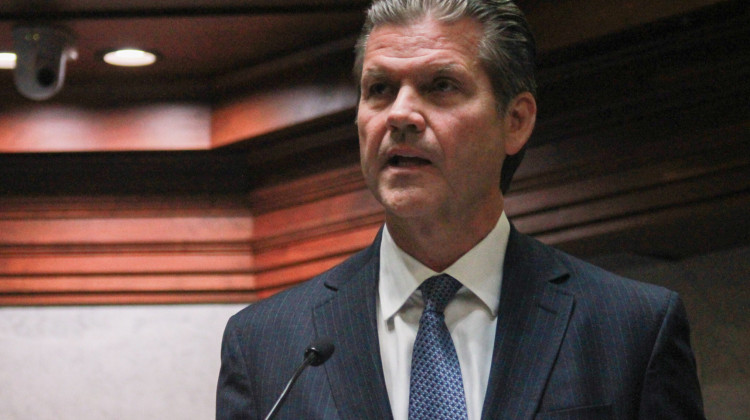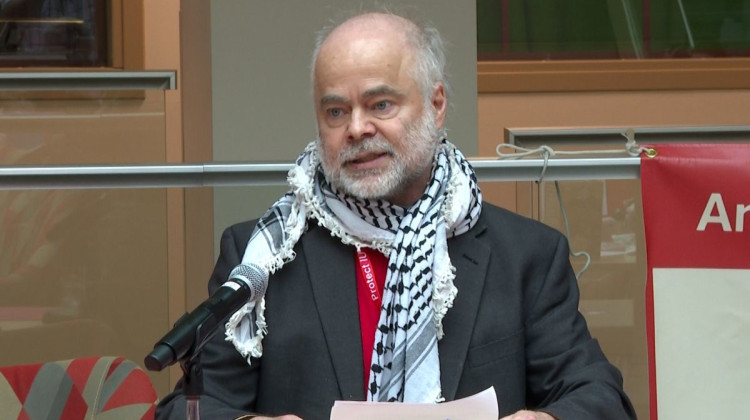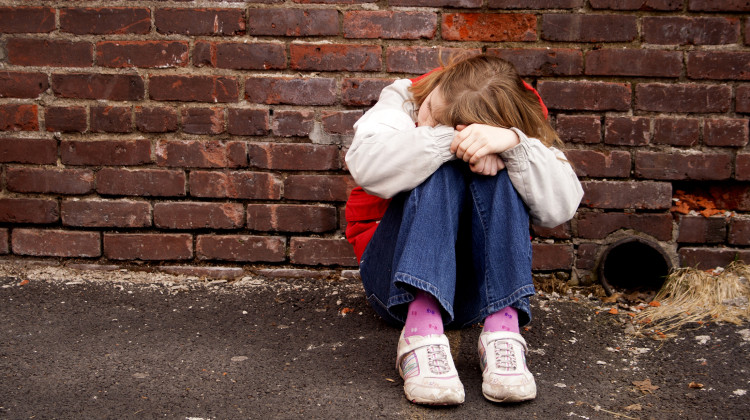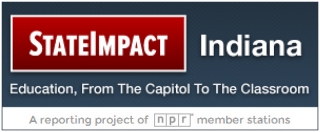
Shorter summer breaks are keeping families away from attractions like The Legend at Holiday World.
Jeremy Thompson, CC-BY-2.0Increasingly around the state and country, the first day of school is getting earlier. Some districts starting the first week of August. Research supports earlier start dates, saying it increases student retention by giving them less time over the summer to forget important information. But, this absence of free time for students during traditional summer months can affect seasonal businesses.
It’s the middle of the week, a hot mid-August day – the rides at Holiday World amusement park in Southern Indiana aren’t running, the water park is closed, and instead, construction crews are working on a large project.
"We are really excited to be building our first major steel roller coaster for next year, the Thunderbird, it’s a huge attraction, and we’ve been able to do so because of the successes we’ve had," says Eric Snow, who oversees marketing at Holiday World.
But despite the success he mentions, Snow is concerned that it’s mid-August and the park isn’t operating.
"With schools going back to session so early, the summer season is really getting shorter and we’re having to respond to it," Snow said.
The shorter summer is because of the balanced calendar some school districts are trying. Instead of summer being around two and a half months long, the days off are spread throughout the school year. This usually means summer break is only a month and a half long, but Christmas, Thanksgiving and Spring break are significantly longer.
School districts are not adopting this calendar to take summer away from kids, or punish seasonal businesses like Holiday World; many say it’s the best thing students. Steve Phillips is the superintendent of Mitchell Community Schools near Bedford. His district switched to the balanced calendar two years ago.
"I heard consistently that once students get back from a long summer, they had to take a week, two weeks, three weeks just to catch them back up to the level that they were when they left," Phillips says, "so I think there’s some merit to that concept."
And since they’ve tried balancing the schedule between classroom instruction and days off, Phillips says teachers in Mitchell are not playing catch up each fall.
Just a few minutes away from Mitchell’s high school is the Holiday Drive-In, a locally owned drive-in movie theater that shows movies on film reels and is completely outdoors, meaning it is only open in the summer…or more precisely only open when it’s not a school night.
Steve Wilson has owned the Holiday Drive-in for more than a decade. It’s been successful, but when Mitchell Community Schools starting going back the first week of August Wilson saw his crowds dwindle on Sunday nights. Parents were getting their kids in bed for school the next day – not going to the drive in. He says he couldn’t afford to open on Sundays anymore.
"Oh yes, it’s probably cost us $10,000 a year here at this drive in, which is probably 15 percent of our gross," Wilson says.
It is alarming for Wilson, who says he can’t make up the lost business at other points of the year when kids are out of school again.
"You know I’ve had people say ‘well you need to adapt’ but there’s not much of a way to adapt," he says. "Our business runs in the summer. When you take a month of summer away and throw it in the middle of winter, I can’t open in the fall or early in the winter to run the theater. It’s not cost effective to do that."
Phillips says the success of Mitchell’s students will always come first, and local businesses should realize with 180 days of classroom time mandated by the state, the summer will always seem too short.
"You’re either going to lose them at the beginning or at the end," Phillips says. "But the only way you can get these days in, you have to start either a little later and go into June or start earlier and get done May 21.
The Indiana Department of Education does not track how many districts use the balanced calendar, but it is increasing throughout the state.
 DONATE
DONATE





 View More Articles
View More Articles


 Support WFYI. We can't do it without you.
Support WFYI. We can't do it without you.